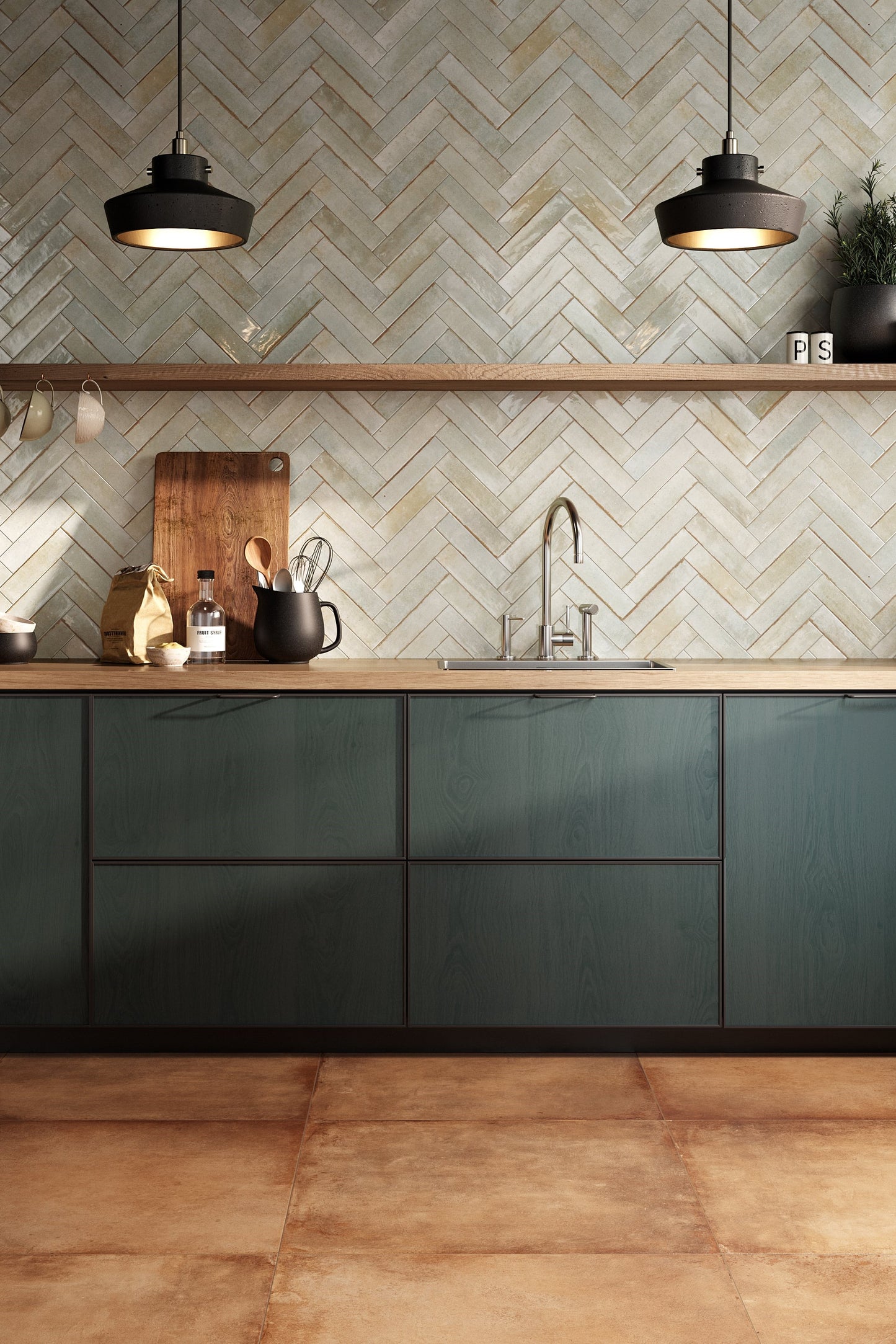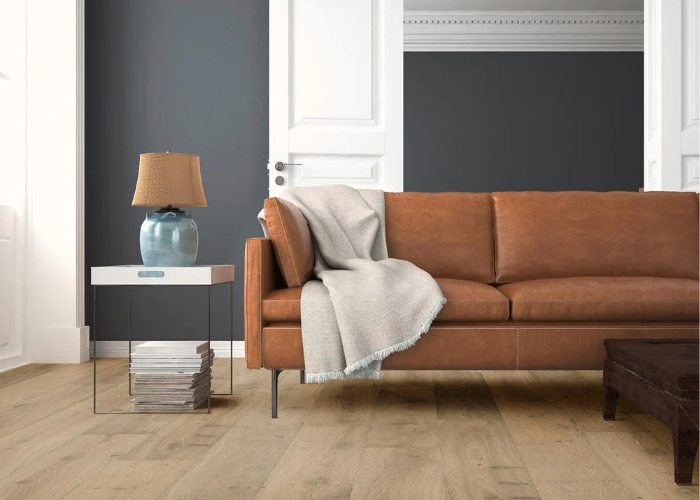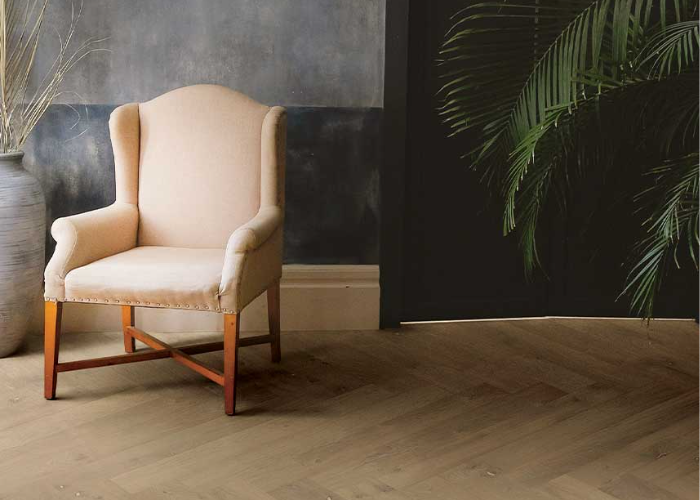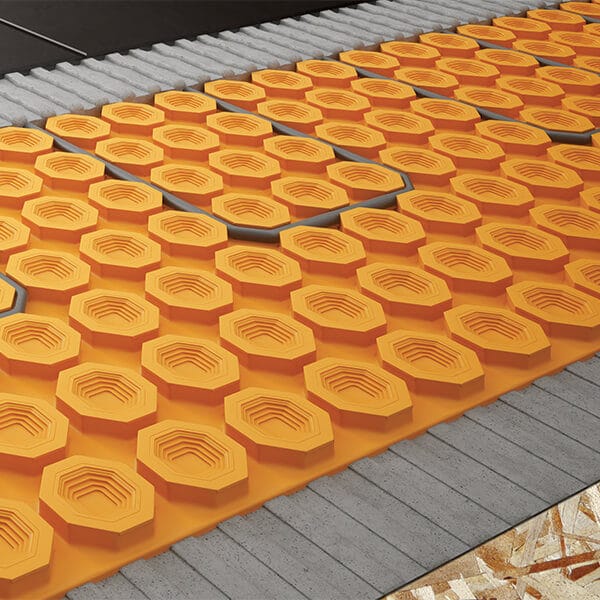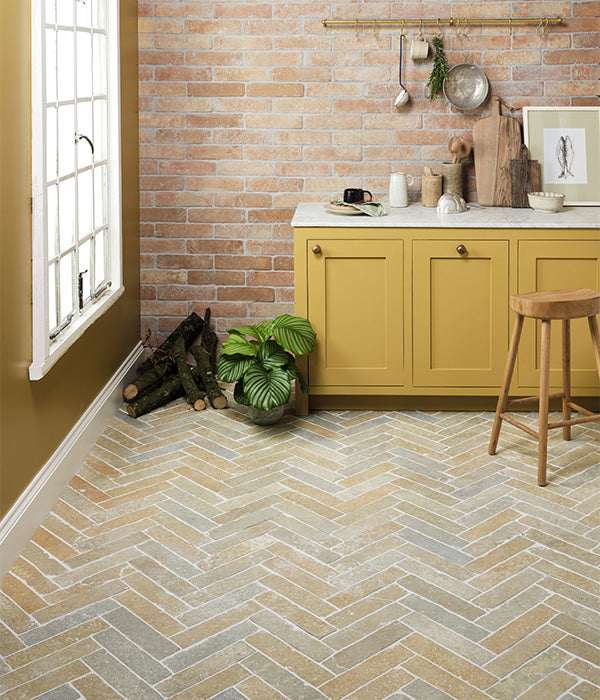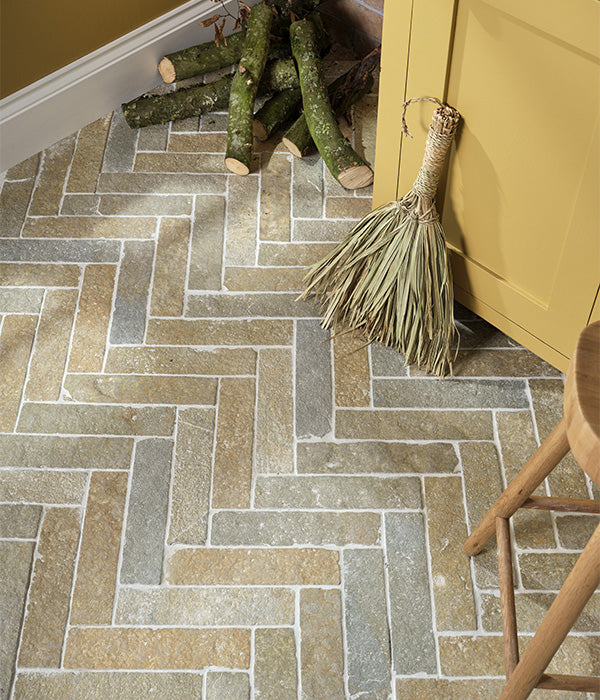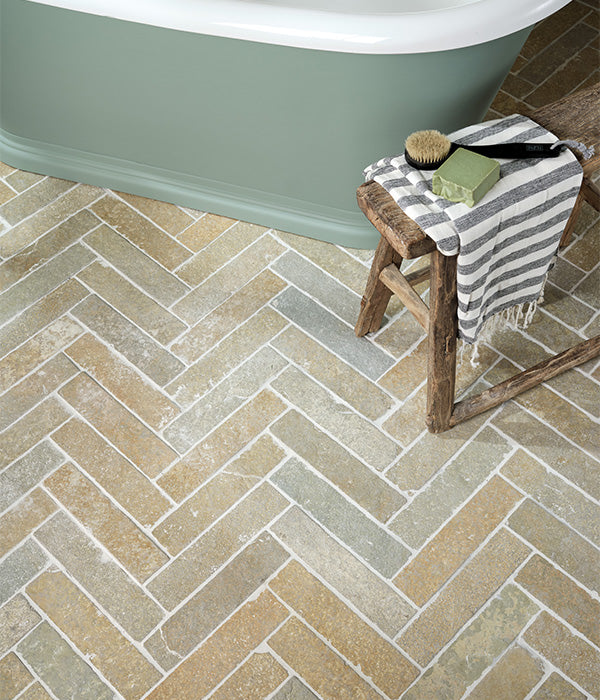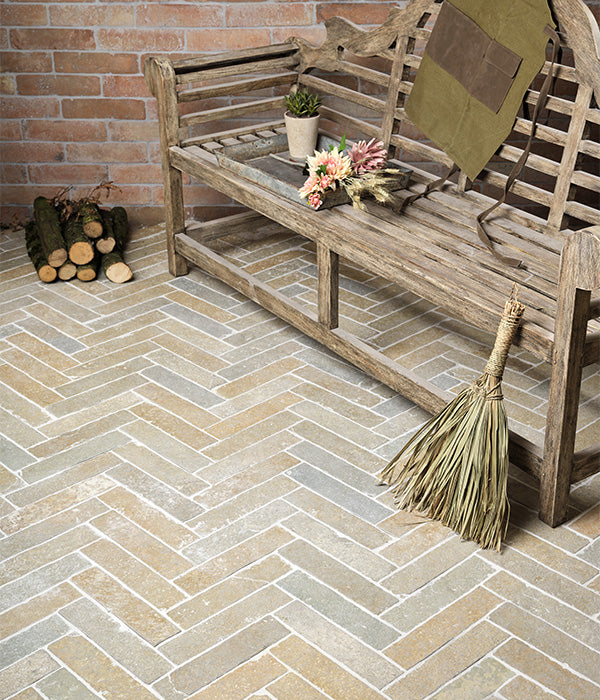This store requires javascript to be enabled for some features to work correctly.
-
Free shipping on stock orders over £500 *Northern Ireland & Scottish Highlands charges may apply
-
Order up to 8 free samples for only £2.99 postage
-
Expert advice in store, online, by phone with over 3 decades of experience
Huge Savings in Our Outlet Sale
Product Specification
MaterialLimestone
EffectNatural Stone
FinishSeasoned
Sealing RequiredYes, requires sealing
Floor/WallFloors and Walls
SuitabilityPool Surrounds, Domestic/Light Use Commercial Interior Floors, External Paving, Heavy Commercial Interior Floors
Delivery & Returns
What are the delivery charges for this product?
We aim to make shipping as economical and affordable for all our customers. We subsidise shipping costs for all orders over £500, offering free Shipping for most of England, Wales and the Scottish Lowlands. There are unavoidable surcharges for Northen Ireland and the Scottish Highlands. Shipping for your order is calculated at checkout and is dependant on the weight and value of your basket.
When will my order be delivered?
Our goal is to deliver all orders within the estimated lead time provided at checkout, which is typically 2-3 business days. Please keep in mind that lead times are in business days and do not include weekends or holidays. We will send you tracking details or information about the expected delivery date of your order via email as soon as it has been processed. If the items you ordered are out of stock or are special order items that are being imported for you, we will communicate with you about the expected lead time and provide an estimated delivery date once your order has been dispatched from our warehouse or our supplier. Please note that we can only give an estimated delivery date and cannot guarantee an exact arrival date.
Can I return unused or unwanted items?
We have a 30-day return policy, which means you have 30 days after receiving your item to request a return.
Returns within 30 days of delivery of our own materials correctly supplied are subject a handling charge of 25% plus any repatriation carriage charges
Returns within 30 days of delivery of special-order items correctly supplied are subject to the supplier's terms and conditions, which may incur up to a 35% handling charge plus any repatriation carriage charges.
To be eligible for a return, your item must be in the same condition that you received it, in its original packaging. You’ll also need the receipt or proof of purchase.
To start a return, you can contact us at fulham@europeanheritage.co.uk. Please note that returns will need to be returned to one of our physical locations.
If your return is accepted, instructions on how and where to send your package will be provided. Items sent back to us without first requesting a return will not be accepted.
What is a special order item?
We have a large selection of our own products in stock, but we also provide access to products from the top manufacturers and distributors in the UK and Europe. This gives our customers access to a wider range of products. These items are typically held in stock by the supplier and not by us, and are considered special order items. As such, they are subject to special order shipping terms and conditions. When you place an order for a special order item, we will order it specifically for you.
Do you ship to Northen Ireland?
Yes, we do ship to Northern Ireland. For parcels shipped via ParcelForce, we will need no additional information from you.
For palletised heavy haulage, there is a short process that you will need to go through to obtain your EORI number, allowing us to complete the necessary customs requirements for you.
You will first need to apply for a GB EORI number by using your National Insurance Number, and convert this to an XI EORI number specifically for Northern Ireland. This can all be done through the government portal. https://www.gov.uk/eori/apply-for-eori
We will need your XI EORI number before we despatch your order.
Payment & Security
What payment methods do you accept?
We welcome all major debit and credit cards, such as Visa, Mastercard, and American Express. You can find a comprehensive list at the bottom of our website. Additionally, we offer convenient payment options like Apple Pay, Google Pay, and Shop Pay for faster transactions during checkout.
I can see a pending transaction in my bank account, but no order?
For security reasons, it's essential that the billing address associated with your card matches the one provided at checkout. If there is a discrepancy between the billing address on your card and the one you entered, your transaction may not be authorised and the payment will fail.
In such cases, your bank may hold the funds as a 'pending transaction', but some may show them as a regular transaction. How long the transactions are held for depends on your bank. Typically these transactions are reversed within 24 hours, but may take up to 5 working days.
If you reattempt checkout with the correct billing details, you won't be charged again, but your transaction will be authorised and your order will processed.
How do you prevent fraudulent activities?
Our commitment to preventing fraud and ensuring the safety of our business and customers leads us to employ an extra layer of security for online credit and debit card transactions. All successfully authorised payments undergo authentication using 3D Secure. It's important to note that your credit card number is neither stored nor accessible during or after the processing of your order, enhancing the security of your transactions.
Product Description
Give large living spaces a Mediterranean look with seasoned Farley Parquet limestone. Suitable for interior and exterior walls and floors, the stone can be taken outside for a seamless connection between inside and out.
FAQs: Farley Limestone Parquet Seasoned Finish
When ordering tiles, how much extra should I buy?
It can be challenging to order the right amount of tiles for a project because there may be difficult cuts that lead to breakages or tiles that are not suitable for use. As a general rule, it is recommended to order 10% extra for cutting and waste. However, for smaller areas with large tiles, the wastage can be higher than 10%. To ensure that you have enough tiles for your project, it can be helpful to draw out the space and calculate the exact number of tiles needed, then add 10% for cutting and waste. If you would like help estimating the number of tiles needed, you can talk to your installer or one of our team members. Please note that these are only estimates and we cannot be held responsible for over- or under-ordering due to circumstances that may arise during installation.
What other products do I need for my tiling project?
Proper planning is essential when starting a tiling project. It is important to consider all the necessary products for substrate preparation, including underfloor heating, uncoupling membranes, adhesive, profiles, tiles, grout, silicone, and sealants if needed. Our team is able to provide expert advice and guidance for all types of installations, and with our wide range of installation products, we can help you achieve a successful installation from start to finish.
Can this tile be used for underfloor heating?
Yes. All of our floor-grade tiles, including porcelain and natural stone, are suitable for use with underfloor heating systems, whether they are wet or electric. We recommend that all underfloor heating systems be installed by a professional electrician and be covered with a self-levelling compound before installing the tiles.
Why are these tiles good for outside?
When installing tiles, the thickness and finish of the tiles should be chosen based on the type of substrate they will be laid on. For concrete bases, tiles with a thickness of 6-10mm are sufficient because the concrete base provides the necessary strength. On the other hand, a sand and mortar substrate requires a thicker tile, such as a 20mm porcelain, for increased strength and stability. To ensure safety, tiles used in outdoor areas with the potential for water or other hazards should have a high slip resistance rating, such as an R11 finish. Similarly, natural stone tiles should be chosen based on the thickness and finish that is appropriate for the substrate. Thinner stone tiles can be used on concrete bases, while thicker stones should be fixed on a mortar bed. Etched finishes can also provide increased slip resistance on natural stone tiles.
What grout should I choose?
It is generally a good idea to match the colour of the grout to the main colour of the tile to minimize its appearance. However, there are exceptions where you may want to use a contrasting grout colour to create a feature or highlight traditional tile patterns. Another factor to consider is the type of grout you use. Traditional cement-based grouts are durable but may fade over time, while epoxy grouts are more resistant to fading, retain their colour longer, and are waterproof, making them ideal for high traffic and wet areas. Ultimately, the decision of what colour and type of grout to use will depend on your personal preference and the specific needs of your project.
What is the best way to maintain my tiles?
For regular maintenance, it is best to use a high-quality pH-neutral cleaner, which is safe for use on all types of porcelain, ceramic, and natural stone tiles. To deep clean your floor, you can use an alkaline-based cleaning product, which can remove old wax treatments and stubborn stains and is suitable for basic cleaning on unpolished natural stones. Be sure to follow the manufacturer's instructions when using any cleaning product to ensure that it is used safely and effectively.
These tiles require sealing, what does that mean?
Porous tiles, such as all of our natural stone materials (including floor tiles, wall tiles, and feature mosaics), will need to be sealed to protect them. In addition to natural stone, crackle-glazed ceramic wall tiles and some polished porcelain tiles may also benefit from a protective sealant. Sealing these types of tiles helps to prevent stains, make them easier to clean, and extend their lifespan. In some cases, anti-slip/exterior finishes on porcelain tiles can also benefit from a protective barrier.
How much tile adhesive do I need?
A 20-kilogram bag of tile adhesive typically covers an area of 3 to 5 square meters, depending on the surface being tiled. As a general guideline, a 20-kilogram bag will cover:
- 5 square meters when installing an anti-fracture membrane, waterproofing membrane, or tile backer board.
- 4 square meters when installing tiles on old concrete, surface levelled or wall surfaces.
- 3 square meters when installing tiles on an anti-fracture membrane.
Should I use standard or fast set adhesive?
The choice between standard and fast-set tile adhesive depends on a variety of factors, including the type of tile, the surface being tiled, and the conditions in which the tiling is being done.
Standard tile adhesive is a good choice for most tile installations, as it provides a strong bond and allows for some flexibility in the tile positioning. It's also suitable for large format tiles and porcelain. Typically standard setting adhesives are used for wall tiling where you might need a bit more time to work.
Fast-set tile adhesive, as the name implies, sets quickly and can be used when time is of the essence, or if the conditions are such that the tile must be set in a short period of time. Also, this type of adhesive can be used in extreme weather conditions where the standard adhesive may not set properly. However, they are often not suitable for large format tile (larger than 600x600mm) unless specified by the manufacturer or combined with additives to increase the flexibility.
Don't hesitate to contact us for advice on selecting the appropriate and cost-efficient tile adhesive for your project.
What our customers say!
-
"Lovely tiles. Great selection and excellent quality and all delivered on time in superb condition."
Anni - GB
-
"Staff were really helpful and informative, especially as I had no idea what I was talking about! We're very clear on additional items needed and what they supply, even down to colour matching grout with tiles etc"
C. Riggs - GB
-
"It was quick easy to place the order and the goods arrived on time as was stated at time of order"
Ray - GB
-
"Excellent service via phone, in person. Caroline was very helpful as were the staff when I picked up the tiles this morning."
Paul - GB

